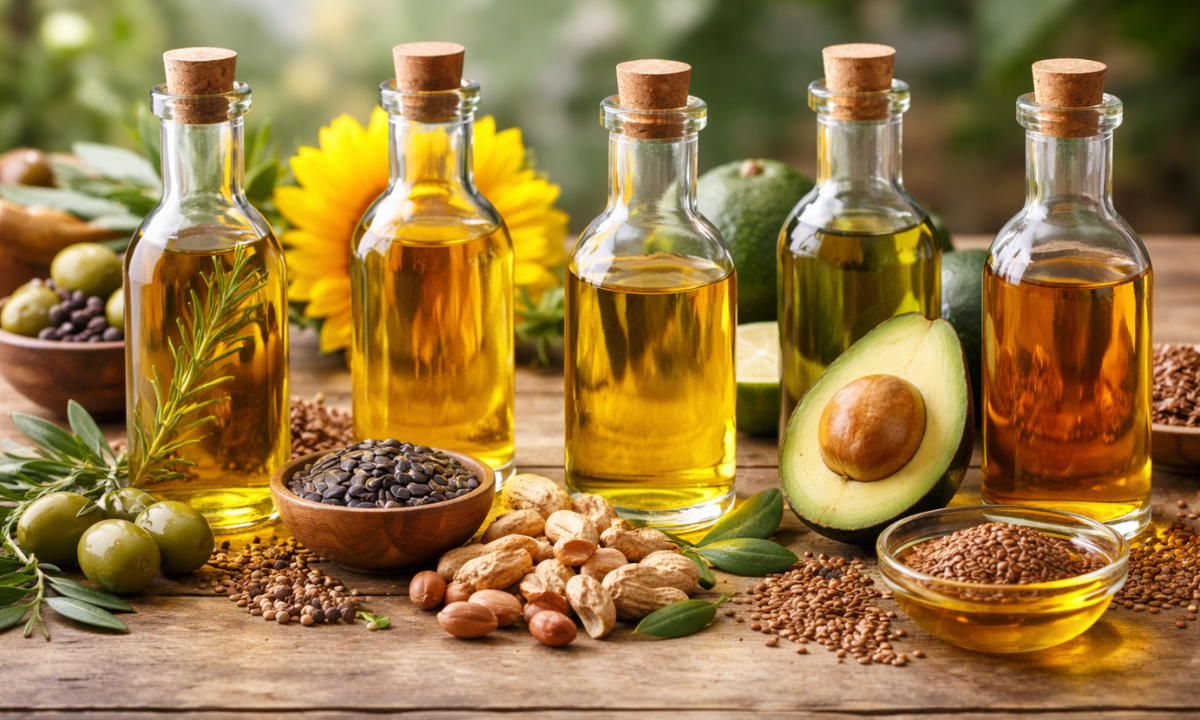If keeping your cholesterol levels in check is your New Year’s resolution, make sure you stick to it. High cholesterol can raise the risk of heart disease and heart attack. Cholesterol is a waxy, fat-like substance produced in the liver that is essential for overall health. Human bodies are not the only source of cholesterol. Foods like butter, cream, processed meat, egg yolk, and cooking oils like coconut oil, palm oil, and palm kernel oil are rich in unhealthy fats (saturated and trans fats) that increase the ‘bad’ cholesterol level. While medicines can definitely help, prevention is always better than cure.
Leading Dietician in Delhi for cardiac health Avni Kaul, shares the benefits of 5 cooking oils that will keep your heart healthy.
The factors to be considered while choosing the right cooking oil are: the amount of fat it contains, whether the oil is refined or unrefined, and smoke point, i.e. the temperature to which the oil can be heated before it starts to break down making the dish unpalatable.
- Olive oil: Extra virgin olive oil contains monounsaturated fats and triglycerides that lower the bad cholesterol without lowering the good cholesterol. It’s medium smoke point makes it an ideal choice for light sautéing, salad dressings, and even for drizzling on your pasta and other Mediterranean dishes. This will add that peppery pop of flavor. Olive Pomace oil is ideal for Indian cooking due to it’s high smoking point.
- Sunflower oil: The very popular sunflower oil, ubiquitous in the kitchen, is rich in polyunsaturated fatty acids and monounsaturated fatty acids which helps in reducing cholesterol and triglycerides in the blood thereby keeping your heart healthy. It’s relatively high smoke point makes it an ideal choice for all types of cooking.
- Groundnut oil: Peanuts contain a significant amount of monounsaturated fats, which reduce ‘bad’ cholesterol. It’s high smoke point coupled with it’s mild nutty flavor makes it ideal for frying, grilling, and tempering or seasoning. However, using this oil for deep frying is not a healthy choice. Unrefined or cold-pressed groundnut oil packed with nutrients is cost-effective too.
- Avocado oil: Being rich in monounsaturated oleic acid, this oil is packed with nutrients and lowers cholesterol. Unrefined extra virgin avocado oil with a medium smoke point of 350-400°F (177-204°C) is ideal for medium heat sauté and can also be used in raw form for homemade dressings, mayonnaise, and dips. Unrefined virgin avocado oil on the other hand has a low smoke point and is best consumed raw. It can also be used in low-temperature recipes.
- Flaxseed oil: Flaxseed or linseed oil derived from ripened flaxseed which is then cold pressed by manufacturers is rich in the essential fatty acid alpha-linolenic acid — a heart-healthy omega-3 fatty acid. From fighting cancer to treating atopic dermatitis to reducing ‘bad’ cholesterol, it is a nutritional powerhouse. Its low smoke point makes it apt for no-heat cooking recipes like salad dressings, dips, and sauces.


